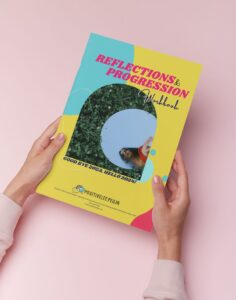"Turn your wounds into wisdom. " - Oprah Winfrey
Pain is perhaps our most universal human experience, yet we all navigate it differently. As a development coach specialising in the Enneagram, I’ve observed how our personality types profoundly influence our relationship with pain—both physical and emotional. Whether you’re seeking personal growth, professional development, or deeper self-awareness, understanding your response to pain can be transformative.
The Role of Pain in Personal Development
I’m personally been going through a challenging period with someone who is really testing my boundaries. When speaking with my coach, we discuss what the pain of this situation spotlights on my own beliefs and barriers. This is a continual journey which I’m in the midst of.
I hate to acknowledge this, but the fundamental truth is that pain, while uncomfortable, often catalyses our most significant growth. I’ve witnessed countless breakthrough moments that emerged from my clients’ (and my own) challenging periods. The key isn’t to avoid pain, but to understand and work with it constructively.
Each Enneagram type processes pain differently. This is how:

Type 1s: My Type One clients often view pain through the lens of self-improvement. When facing difficulties, they typically internalise pain as evidence of personal shortcoming. However, their growth journey involves recognising that pain isn’t punishment—it’s a natural part of the human experience. Perfectionist personalities benefit from embracing the understanding that discomfort doesn’t equate to failure.
Type 2s: Those with a core Type 2 personality often deflect personal pain by focusing intensely on others’ needs. In coaching sessions, we frequently uncover patterns where Twos submerge their own suffering beneath layers of service. Their developmental path involves acknowledging their own right to experience and process pain, rather than constantly redirecting attention to others’ struggles.


Type 3s: Achievement-oriented personalities frequently transform pain into productive energy. While this can lead to impressive accomplishments, it sometimes prevents genuine processing of difficult emotions. In our coaching work, we focus on helping Threes understand that slowing down to feel isn’t a sign of weakness—it’s essential for authentic success.
Type 4s: Fours often maintain a unique relationship with pain, sometimes viewing it as a marker of depth and authenticity. Through coaching, we work on helping them recognise that their significance extends beyond their suffering. Their growth involves understanding that joy can be equally meaningful and profound as pain.


Type 5s: My Type Five clients typically approach pain analytically, seeking to understand rather than feel it directly. While this intellectual approach can provide valuable insights, true growth occurs when Fives learn to remain present with emotional experiences without retreating into pure observation.
Type 6s: Anxiety about potential pain often characterises the Six’s experience. Their anticipatory nature can create additional stress around pain management. Our coaching work focuses on building trust in their capacity to handle difficulties as they arise, rather than exhausting themselves through constant preparation.


Type 7s: Sevens naturally gravitate toward positive experiences, often quickly moving away from painful situations. Through development coaching, we work on building their capacity to sit with discomfort, understanding that processed pain often leads to deeper, more sustainable joy.
Type 8s: Eights typically meet pain with strength and resistance, viewing vulnerability as a potential weakness. Our coaching journey often involves helping them recognise that authentic strength can include softness and that vulnerability often leads to deeper connections and more effective leadership.


Type 9s: Nines tend to minimise or numb their pain in pursuit of inner harmony. Through coaching, we focus on helping them stay present with difficult experiences, understanding that true peace comes via processing pain rather than avoiding it.
Remember... You are stronger than your pain.
And I’m here to support you in navigating it. As a development coach, I encourage clients to engage with their pain response through several structured approaches:
- Develop awareness of your default pain response
- Recognise how your Enneagram type influences your relationship and perception with the pain
- Practice new ways of engaging with challenging experiences
- Document your growth journey and patterns
- Seek support when navigating particularly challenging periods
The Coach's Role in Pain Processing
Professional coaching can provide invaluable support in understanding and transforming your relationship with pain. A coach trained in the Enneagram can help you:
- Identify your typical pain response patterns
- Develop strategies aligned with your personality type
- Navigate challenging transitions more effectively
- Transform pain into opportunities for growth
- Build resilience through enhanced self-awareness
Understanding your Enneagram type’s relationship with pain isn’t about boxing yourself in—it’s about gaining insight into your growth path. Understanding what causes you pain can transform this into stepping stones for profound personal and professional development.
If you’re interested in exploring how your Enneagram type influences your growth journey, or if you’d like support in navigating challenging transitions, professional coaching can provide valuable guidance. Together, we can work on transforming your relationship with pain into a source of strength and development.
To take your first step, choose from 3 coaching options here. Email me at positiveleepeilin@gmail.com or whatsapp +65 8288 5457 to book for more information.



